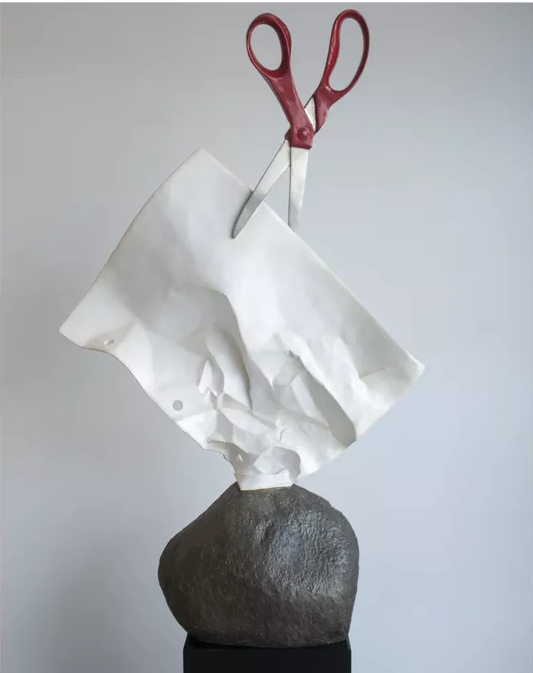When the Japanese firm, Maspro Denkoh, decided to sell a $20 million art collection, its President said that one of the world’s two major auction houses, Christie’s or Sotheby’s, would get the consignment. Which one? They had to play rock paper scissors.
Much more than a children’s exercise, rock paper scissors is all about game theory.
The Rock Paper Scissors Battle
Currently in a 51 company corporate family, Maspro Denkoh is a 69 year-old firm that primarily manufactures communications equipment. In 2005, its art collection included multi-million dollar paintings by Vincent van Gogh, Paul Cézanne, Pierre-Auguste Renoir and Pablo Picasso. When the company’s President decided to sell them, he explained that his method, used in the past, was not unusual in Japan. “As both companies were equally good and I just could not choose one, I asked them to please decide between themselves and suggested to use such methods as rock, paper, scissors.” Soon after, when they had no resolution, he informed them that they would meet during the following Monday after each had selected a “weapon.”
Kanae Ishibashi, the president of Christie’s in Japan did some research. She reputedly consulted psychology, prayed, sprinkled salt, and carried lucky charm beads. But most crucially, she consulted a colleague’s daughters. Eleven year-old Alice told her (what became a Time Magazine Quote of the Week), “Everybody knows you always start with scissors.”
Meanwhile Sotheby’s said they assumed beforehand that effort would be a waste of time. As a game of chance, it required no strategy.
On that Monday, in a conference room, the opposing teams received a written list of rules. Next, they had to write one word in Japanese on a piece of paper. Christie’s wrote scissors, Sotheby’s paper. As you know, scissors beats paper.
Our Bottom Line: Game Theory
An example of economic game theory, rock, paper, scissors involves strategizing against a second party that has the power to affect the consequences of your decisions.
You see the problem. Sometimes you have to know what your opponent will do in order to decide how to act. The problem though is that with non-cooperative game theory, you don’t know. You have to figure out your response before you know what to respond to. What you do can be explained by game theory.
Game theory has been called the economics of cooperation or non-cooperation. It relates o economics because there is an equilibrium point. Whether looking at disarmament negotiations, Pepsi and Coke choosing new flavors, or rock, paper, scissors, the basic strategic patterns are similar. Two parties know not what the other will do. However, an “equilibrium point” where they each take the optimal set of alternatives does exist.
John Nash won a Nobel Prize for his research about game theory. Below, he gives a traffic example that could easily have applied to Christie’s and Sotheby’s:
My sources and more: Thanks to 99percentinvisible for alerting me to the “rock paper scissors” podcast. From there, I suggest the NY Times and WSJ for more of the facts and this Wired article for its game theory. But, if you really care about honing your skills for the game, there actually is a WRPSA (World Rock Paper Scissors Association) with a strategy book and a tournament schedule. Then, returning to economics, for more on John Nash, you could go to Econlib and to econlife for the game theory side of soccer. Our featured image is from artsy.net.






